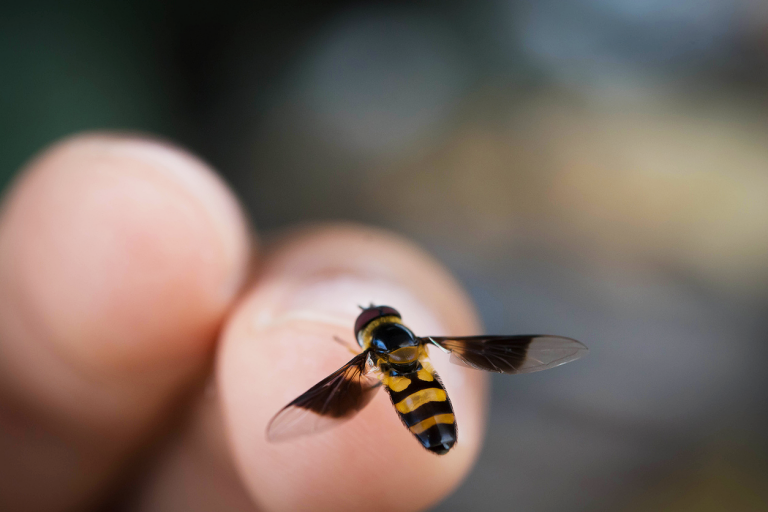

A common fear among individuals enjoying the outdoors is the fear of being stung by a bee. A bee sting can trigger many negative sensations, but for some, it can cause severe reactions. Once the initial panic of being stung dies down, assess the situation. Our team at Manning Pest Control is here to guide you through a standard bee sting and treatment options for varied local reactions.
**If reaction is severe, please seek professional medical attention immediately.**
Know your body
If you have never been stung by a bee, you might not know whether or not you are allergic to their stings. A normal reaction to a bee sting will result in localized pain and flushed, swollen skin where the bee stinger was inserted. If your reaction is heightened to an extreme state, you might be allergic. Allergic reactions vary, but a victim allergic to bee stings might experience immediate difficulty breathing or swallowing, hives, swelling in places other than affected area, wheezing, or dizziness. Some of these symptoms may also be the result of an infection from the sting. In the case of an allergic reaction or infection, emergency medical attention is necessary.
Treatment for a standard reaction
If you are not allergic to a bee sting, you can simply treat the incident yourself.
- First, remove the stinger from the insertion area. According to the American Academy of Dermatology, “The longer the stinger stays in the skin, the more venom it releases, adding to the person’s pain and swelling… Remove it by scraping over it with your fingernail or a piece of gauze.”
- After the stinger is removed, wash the affected area thoroughly with soap and water. The affected area will remain inflamed for a bit, but an ice or a cold pack may be applied to reduce swelling. You may ice periodically until swelling has subsided.
- To relieve minor pain or discomfort, you may take over the counter medications. For pain management, consider taking a recommended dosage of acetaminophen or ibuprofen. For minor discomfort or itching, consider using a topical hydrocortisone (anti-itch) cream.
All in all, every bee sting should be handled with care. Thankfully, there are methods to avoid being stung by a bee, including safeguarding your surroundings. To protect your property from swarms of bees or local hives, contact our team of experts at Manning Pest Control.


